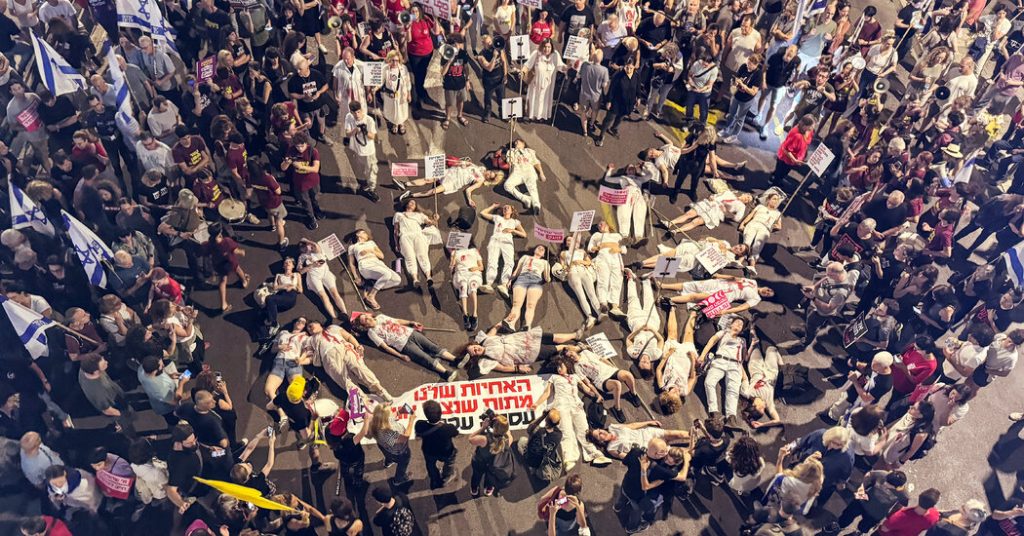Benny Gantz, a member of Israel’s war cabinet, has given Prime Minister Benjamin Netanyahu an ultimatum to develop a plan for the future of the war in Gaza by June 8. Failure to do so may result in Gantz leaving the government, putting further strain on the already fragile coalition. This move would make Netanyahu more reliant on his hard-line partners and could lead to the formation of a new government. Gantz’s ultimatum follows increasing pressure on Netanyahu to clarify a strategy for Gaza, both internationally and domestically.
The ongoing conflict in Gaza has led to the deaths of over 34,000 people, with slow progress made towards dismantling Hamas and freeing hostages. Negotiations for a cease-fire releasing hostages have stalled, and Israel and Hamas remain at odds over the conditions for a truce. Israeli forces continue to face a renewed Hamas insurgency in Gaza, while also dealing with bombardments from Hezbollah across the border. Tens of thousands of Israelis have been displaced with uncertain timelines for their return home, reflecting the challenges of the prolonged conflict.
Gantz joined the Israeli government as an emergency wartime measure, resulting in a fractious coalition marked by tensions between different political factions. Calls for a clear postwar plan for Gaza have come from both Israeli officials and the United States. While U.S. officials have advocated for empowering the Palestinian Authority to govern Gaza, Israeli leaders have rejected this idea. Gantz and Netanyahu oppose any imposition of a Palestinian state, instead proposing a temporary civil administration without international backing. The recent discovery of dead hostages and a resurgence of Hamas fighting underscore the shortcomings of Netanyahu’s current strategy.
As the conflict intensifies near Rafah in Gaza, aid flows have dwindled, exacerbating humanitarian concerns. While the U.S. facilitated the entry of humanitarian aid through a temporary sea corridor, land border crossings remain the most efficient means of supplying goods to Gaza’s civilians. Only a fraction of needed aid trucks have entered Gaza, leading to warnings of famine and severe shortages among displaced civilians. The continued Israeli offensive in Rafah, characterized as a limited operation against Hamas, contrasts with satellite images showing widespread destruction and indications of a significant incursion.
The situation in Gaza has led to mass displacements, with over 800,000 Palestinians fleeing Rafah alone since the offensive began. As civilians seek refuge in overcrowded areas facing dire conditions, concerns mount over the impact of the conflict on innocent lives. Families like the al-Lahhams have been forced to rely on limited aid resources and fend for themselves amidst rising prices and shortages of essential goods. The challenges faced by Palestinians in Gaza highlight the urgent need for a sustainable solution to end the prolonged conflict and provide relief to those affected by the ongoing violence.


